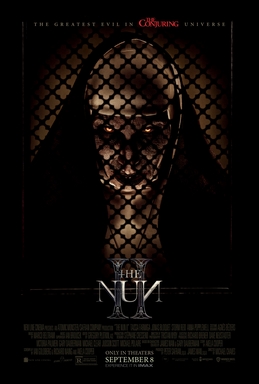‘Boy Erased’ movie tackles sensitive subjects with grace and care
Warning: Contains movie spoilers and references to sexual assault.
Disturbing and powerful, Boy Erased tells the story of Jared Eamons, played by emerging actor Lucas Hedges (Manchester by the Sea), the son of a small-town preacher who is forcibly outed as gay to his parents.
At first glance, Jared seems like he has it all: he’s adored by his conservative parents, he’s popular at school and he has a girlfriend. While this may sound like a familiar plotline for most coming-of-age movies, it takes a turn when Eamons is sexually assaulted by a male student at college and his parents find out, prompting them to question his sexuality. When he admits that he’s gay, his parents send him to a religion-based conversion therapy camp, which is intended to ‘convert’ LGBTQ+ people to be straight.
Though this may seem like a horrifying concept to center a movie around, it is more timely now than ever: conversion therapy camps are still legal in 36 states, and no restrictions exist to control or monitor the types of ‘therapy’ used, which can include beatings and electric shock.
In the camp, Eamons meets a wide cast of characters who shine a light on the fact that not every target of conversion therapy is young and male; one man appears to be in his fifties, and a few girls also occupy spots at the camp.
The camp leaders’ tactics grow more and more violent as the days go on, and Eamons witnesses one boy beaten with a bible and verbally assaulted by his own family. When the camp director tries to make Eamons blame his family for him being gay, it is the final straw, and Eamons refuses to blame his family for something that wasn’t their fault. Eamons calls his mother and begs her to come get him, which she does, despite camp leaders trying to lock Eamons inside the camp and refusing to let him go.
In the end, the movie shows Eamons in the future, when he has become a successful journalist and has written several articles about his experience in the gay conversion camp. His mother has come around and accepts him for who he is, though his father still struggles with the conflict between loving his son and his own conservative personal beliefs. The film’s portrayal of the parents is extremely moving; while most movies like this paint the parents as flat, two-dimensional characters whose only purpose is to serve as an antagonist to the main character, Boy Erased gives the parents personalities that make them almost relatable. It serves as a reminder that not everyone who believes in conversion therapy is purely evil; some are merely misguided, or don’t understand because they don’t personally know any LGBTQ+ people. As with Eamons’ mother, once she realized how this affected her own son, she became more accepting and abandoned her anti-gay views, showing her depth and potential rather than leaving her as a stagnant, antagonistic character.
Overall, Boy Erased has the ability to touch any viewer, showing the horrors of conversion therapy camps and the thought process of misguided parents who choose to send their kids there. Easily one of the most impactful films of the year, Boy Erased deserves 5/5 stars.








